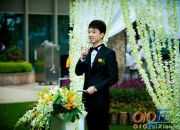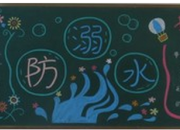东北三省四市届高三第一次模拟英语试卷
时间:2021-08-31东北三省四市2019届高三第一次模拟英语试卷
一、阅读理解
Knowing what to do at checkout and properly preparing for it can turn a potentially heated situation into a quick thank you add goodbye. Below we made a list of five things you should remember at hotel checkout.
Don’t be late to check
Hotels may add an extremely high price for being just a half hour late. If you know you won’t make the cutoff time, it never hurts to call ahead and try to negotiate away a potential charge.
Don’t forget to double cheek the room and safe
Make sure you don’t leave things behind. If you have an early flight or checkout time, pack up as much as you can the night before so that last-minute rush isn’t too annoying. Also, be sure to take out anything in the room safe.
Don’t forget to tip the housekeepers
It’s always polite to leave some money for the people keeping your room clean.
Don’t ignore the detailed bill
You may be in a rush, but give the detailed hill a careful look to see if the hotel charge is different from the rate you initially booked.
Don’t get angry
Shooting at the assistant manager standing behind the front desk probably won’t help.
When dealing with an unexpected item on the bill. Think about how difficult it can be to deal with annoyed customers. Keep calm and things may be solved better and sooner.
1.The hotel will charge you more money if you? .
A. check before cutoff time
B. do not call the hotel ahead
C. are late in checking out
D. negotiate with the clerks
2.Which of the following does the author suggest doing?
A. Leaving something behind.
B. Being sure to keep the room clean.
C. Doing the pack-up as early as possible.
D. Tipping the housekeepers to show respect.
3.What is the purpose of the last paragraph of the passage?
A. To suggest a way to solve problems properly
B. To provide more information about the hotel.
C. To show the uneasiness of assistant managers
D. To protect customers from unnecessary dangers.
4.In which section of the magazine can you probably find such a passage?
A. Fitness.B. Nature.
C. Lifestyle.D. Travel.
Emilia Dobek traces her interest in space and the universe back to third grade when she and her father watched a blood moon---a total lunar eclipse (月蚀)---on the roof of their house.
Now a seventh-grader at East Prairie Elementary School, Dobek recently won the national Discovery Education Lockheed-Martin Beyond Challenge by designing a space station for travelling to Mars.
She says that night watching the lunar eclipse started a strong desire in her that has yet to run out of fuel. So when her teacher Andrea Smeeton received information about the national challenge, Smeeton said she immediately had one student in mind.
“I knew she would love the challenge and that she would go way beyond in her search,” Smeeton said. “She immediately started researching bone density (密度) of astronauts and how to have food on Mars.”
“My design will ensure the safety of the astronauts but also make sure their comfort is out of this world,” Dobek says.
Dobek’s design calls for building the MSS or Mars Storage Station to put the supplies in. It also includes the SGF or Self-Crowing Farm, and she details how it would work with the elements on Mars.
Then there is physical and leisure activity for the astronauts under Dobek’s design. A simulation (模拟装置) allows astronauts to choose their exercise machine and virtual (虚拟的) reality environment. Rooms have circular ceilings so astronauts will be able to watch downloaded shows and even see places on Earth, such as their homes.
“I want to tell other kids to follow their passions.” Dobek said. “Whatever they want to do they should push for it and always try their best.”
1.Dobek first became interested in apace when______ .
A. she was still a seventh-grader
B. she studied at a junior high school
C. she lived on the top of their house
D. she watched an eclipse of the moon
2.Smeeton recommended that Dobek take the challenge because______ .
A. she knew Dobek liked challenges in life
B. she had no other students interested in Mars
C. Dobek knew how to research bone density of astronauts
D. she was sure that Dobek would have outstanding performance
3.What does Dobek focus on when designing the space station?
A. The environment on Mars.
B. The safety of the supplies.
C. The activities for astronauts.
D. The comfort of the astronauts.
It is generally acknowledged that young people from poorer socio-economic backgrounds tend to do fess well in the education system. In an attempt to help the children of poor families, a nationwide program called “Headstart” was started in the US in 1965. A lot of money was poured into it. It Look children into pre-school institutions at the age of three and was supposed to help them succeed in school. But the results have been disappointing because the program began too late. Many children who entered it at three were already behind their peers in language and intelligence and the parents were not involved in the process. At the end of each day, “Headstart” children returned to the same disadvantaged home environment.
To improve the results, another program was started in Missouri that concentrated on parents as the child’s first teachers. This program was based on research showing that working with the family is the most effective way of helping children get the best possible start in life. The four-year study included 380 families who were about to have their first child and represented different socio-economic status, age and family structure. The program involved trained educators visiting and working with the parent or parents and the child. The program also gave the parents some guidance, and useful skills on child development.
At three, the children involved in the “Missouri” program were evaluated with the children selected from the same socio-economic backgrounds and family situations. The results were obvious. The children in the program were more advanced in language development, problem solving and other intellectual skills than their peers. They performed equally well regardless of socio-economic backgrounds or family structure. The one factor that was found to affect the child’s development was the poor quality of parent-child interaction. That interaction was not necessarily bad in poorer families.











